

The best marketing strategies of all time are always about the basics of human behavior.
After all, if you’re not able to understand the psyche of your potential customers, no amount of ad spend can save your business.
Marketing is the most important part of growing a business—and if you’re looking for marketing strategies that are truly powerful, there are two things you should know:
In this blog post, we have listed and explained 18 highly effective marketing strategies that the greatest of brands have used to improve their bottom line.
We have also shared easy tips for you to execute these marketing strategies for your business.
These marketing tactics really just speak to the fundamentals of good human relationships, and factor in the latest technological aids for marketing your brand.
Read on.
All small businesses want a low-budget marketing plan. The problem, however, is determining which of the successful small business marketing strategies offer the highest ROI.
That’s why we are sharing a list of high-ROI marketing strategies that you can and should steal from the industry today.

Every business needs a direction. Every marketing campaign needs to start with a goal and a budget.
This is perhaps the only free marketing strategy in the world.
Without a goal and a budget, it becomes exceptionally difficult to determine whether or not your campaign was successful.
Plus, according to CoSchedule’s roundup of 2018 marketing statistics, marketers that set goals for their campaigns are 429% more likely to report success.
As Forbes contributor Jayson DeMers says, this makes sense because:
Let’s take a look at a few tips for setting your marketing campaign goal and budget:
The most successful marketing campaigns help you achieve the highest ROI. Once you build your influence, you can use many more powerful marketing strategies.
With influencer marketing delivering ROI as high as $6.50 for every $1 spent, it’s quickly become one of the most effective marketing strategies for a small business.
This explains why influencers are finding their way into many social media promotional strategies used by small businesses.

To create a successful influencer marketing campaign, Entrepreneur contributor Murray Newlands recommends the following steps:
Alternatively, you could always create influencers from your own employees. Often referred to as thought leadership, social selling and employee advocacy are becoming more popular with companies who want to amplify their brand message.
Going beyond simply resharing corporate posts, employee advocacy allows each one of your employees to become brand ambassadors and social sellers, sharing the content that makes the most sense for their individual industries while promoting your company.
In fact, according to LinkedIn, Salespeople who are using social media to sell are 51% more likely to hit their sales quotas over their less social savvy peers—and they would know. LinkedIn was responsible for nearly 95% of conversions coming from employee advocacy posts in 2021.
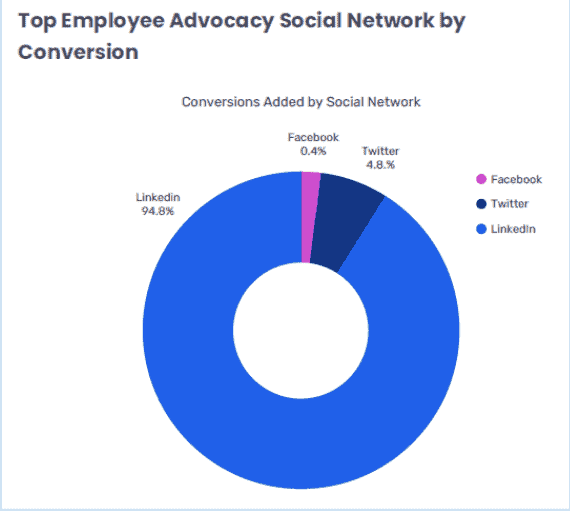
With the undeniable potential of social media marketing as a small business marketing strategy, it can be tempting to try and find success on as many social platforms as possible.
But, as marketing guru Neil Patel tells us, it’s best to focus on one social channel at a time:
To become a champion of one social channel, the team at Social Media Marketo recommends a 12-step process:
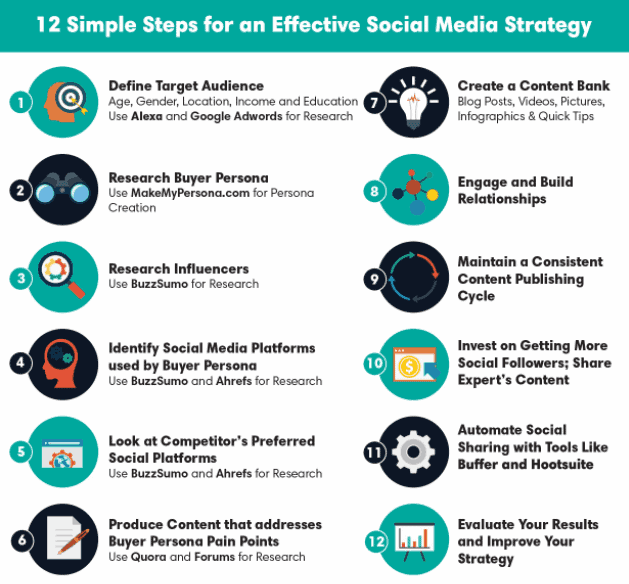
With 59% of marketers claiming that email is their most effective marketing channel for revenue generation, this is one strategy that you don’t want to ignore.
If you haven’t started building your email list, Social Triggers founder Derek Halpern recommends a few tips for getting started:
You can use tools like Designhill email signature generator to create a professional email sign-off with links, banners, and call-to-actions.
For more details, check out this article on how to get more results from every email you send.
When done correctly, starting a blog is one of the absolute best ways to drive targeted traffic to your website.
In fact, marketers that effectively utilize blogs tend to get 67% more leads than those that do not. But that’s only if you’re doing it right.
To succeed with blogging, you should:
With 70-80% of modern-day consumers ignoring ads altogether, ranking for targeted keywords has never been more important.
To rank in SERPs for keywords that can drive high-quality leads, there are a few simple tips that you should follow:

As Forbes contributor Brian Sutter says, “Teach, don’t sell…”
This is a concept that far too many modern-day marketers misunderstand.
And it’s why many businesses struggle to differentiate their message through content marketing.
To ensure you’re teaching your audience the right way, Sutter recommends that you:
Marketing research plays a crucial role in the success of your small business marketing strategies.
After all, if you don’t know the audience you’re marketing to, it’s going to be difficult to communicate with them effectively.
One of the best ways to perform market research is through the use of surveys. To get the most out of this strategy, Survey Monkey recommends that you:
One small business marketing strategy that can have an immediate impact on conversions is the focus of your landing pages.
While most conversion experts are quick to recommend that you should always start your marketing campaign with a dedicated landing page, many fail to mention the importance of focusing on a single goal.
For your landing page to succeed, your focus should be on getting your readers to take a single action.
After all, if you have 20 links on your landing page, your attention ratio is 5%. With one link, that ratio is 100%.
This simple act of focusing on getting your readers to take one action on each page can do wonders for your conversion rates.
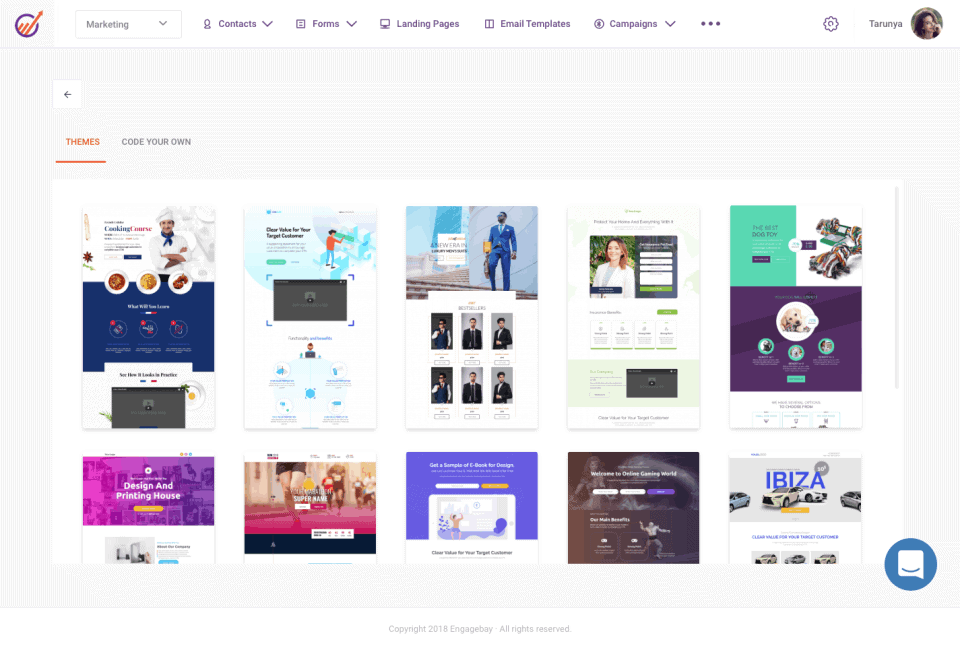
A recent McCann study found that 42% of American consumers believe that brands and companies are less truthful today than they were two decades ago.
Translation: Almost half of all consumers don’t trust modern-day businesses.
With this in mind, standing for something that’s important to both you and your target audience can become a huge differentiation factor.
Take for example the ALS ice bucket challenge that went viral and raised $220 million for the ALS Association.
Here are a few ways you can do it:
Social media has certainly changed the game as far as how modern-day marketing works.
But while many small businesses focus their efforts on the free and low-cost marketing opportunities that social media platforms offer, ads have also proven effective to drive ROI.
Unsurprisingly, Facebook dominates in the world of social media advertising, as over 93% of marketers use some form of Facebook ads.

To get the most out of your Facebook ad campaign, there are a few things you’ll want to focus on:
As a small business, local SEO can make or break your business.
And while determining the driving forces behind which local businesses rank highest in Google is still somewhat of a mystery, the below graphic from Moz breaks it down in an easy-to-understand way:
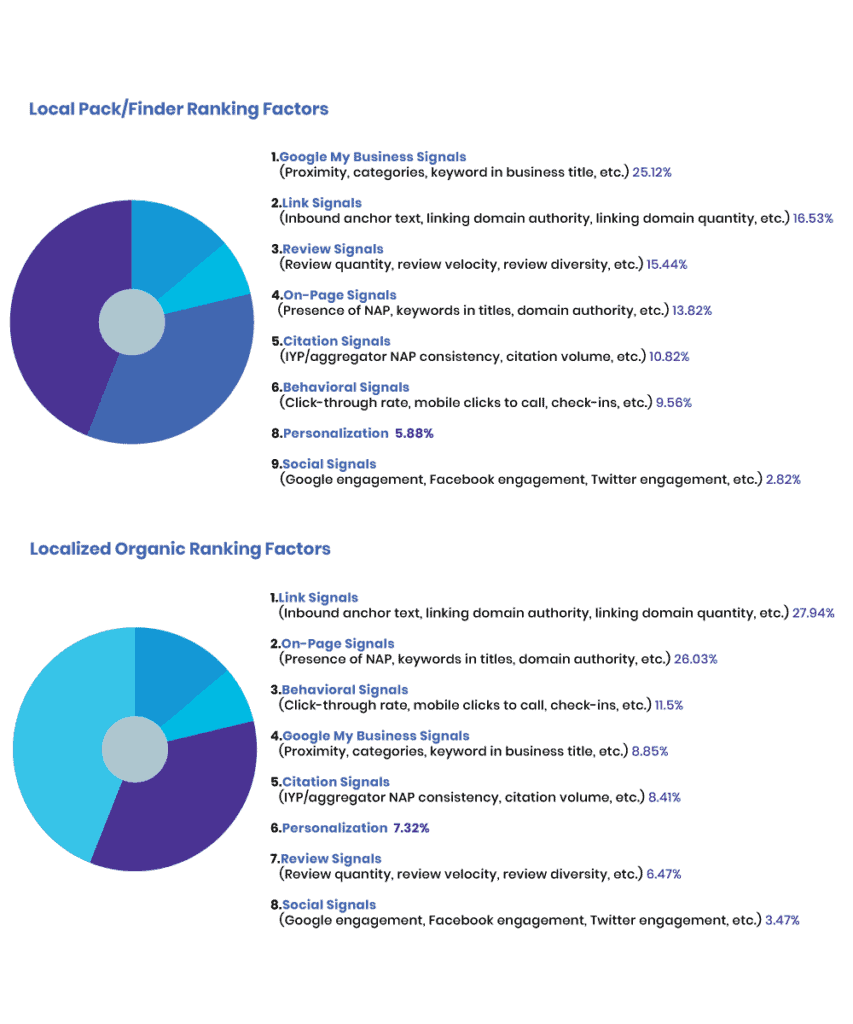
By focusing on optimizing local SEO for the above factors, you can quickly position yourself for success in the SERPs.
It’s hard to debate the importance of customer retention to the long-term success of your small business.
The probability of selling to an existing customer is approximately 65% and that for selling to a new customer is about 10-15%.
To ensure that more of your customers are continuing to purchase from you, growth marketer Sujan Patel recommends that you focus on improving your onboarding process.
To do it, Patel says that you should:
Storytelling is a powerful tool for any marketer. It can drive up the conversion rates by as much as 400%.
While it can be difficult to measure, there’s little doubt that storytelling can be an effective way to market your business and attract a loyal following.
To do that, Forbes contributor Mike Kappel recommends 5 Essential Tips for Business Storytelling:
Exploring and utilizing partnerships with other small businesses can boost the revenue potential of your business exponentially.
As Entrepreneur contributor Web Smith points out:
“You can survive alone, but you’ll only really thrive when you plug into the community around you.”
To develop effective partnerships, Smith recommends that you:
Webinars have become a go-to marketing strategy for tech businesses with a good digital presence.
However, small businesses that are not so tech-savvy are missing out.
With webinars being noted as among the top 5 most successful marketing strategies, you need to take advantage of this trend.
Amy Porterfield uses webinars as a critical component to building her customer base. She says webinars help her audience get to know, like, and trust her.
To borrow from Forbes Contributor Ashley Stahl, a webinar host should:
While it will undoubtedly vary by industry, the conversion rate of offering free consultations makes it one of the most effective small business marketing strategies trending today.
In fact, in some cases, even medical businesses have seen conversion rates as high as 75% when they offer free consultations.
Let’s take a look at a few tips to raise the likelihood of turning a lead into a customer through your free consultation:
A free demo goes a long way in clarifying the customer’s doubts and building trust.
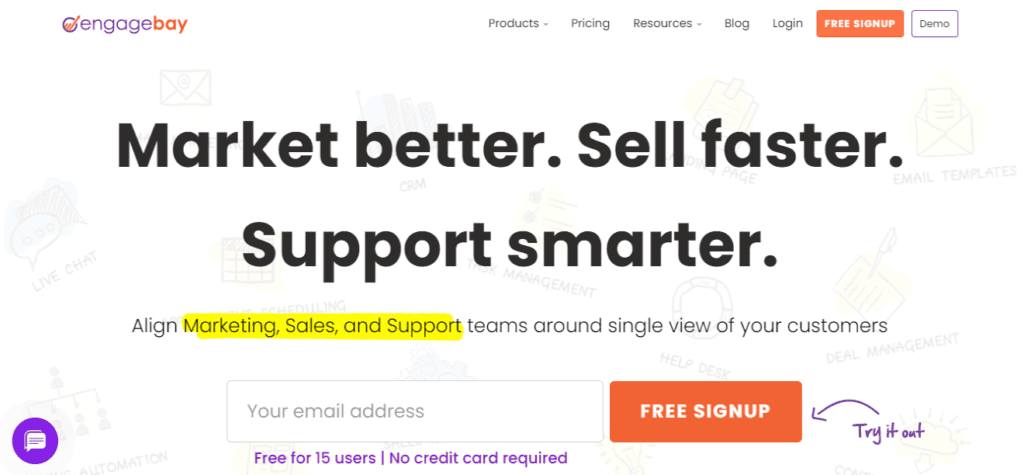
Writing a column for well-known publications that share your target audience is a great way to drive traffic to your website and generate brand recognition.
Josh Steimle for example writes for publications like Forbes which has served to provide great leads for his business.
This tactic, which is also known as guest posting, can also help you develop partnerships with businesses and website owners that share your target market.
To succeed with this strategy, Copyblogger recommends that you:


Copyright © 2023. All Rights Reserved.